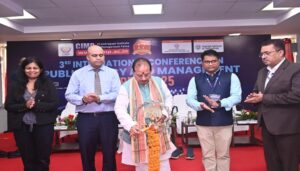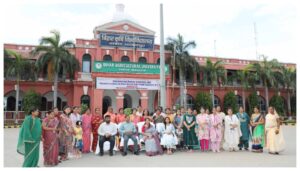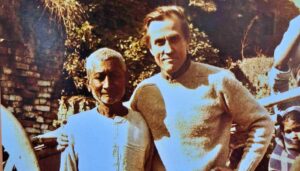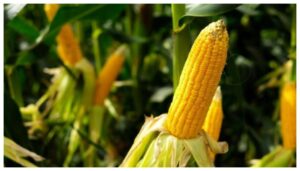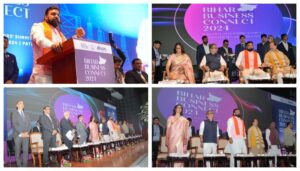Begusarai Ayurvedic College Uses QR Codes to Help Students and Public Identify Medicinal Plants
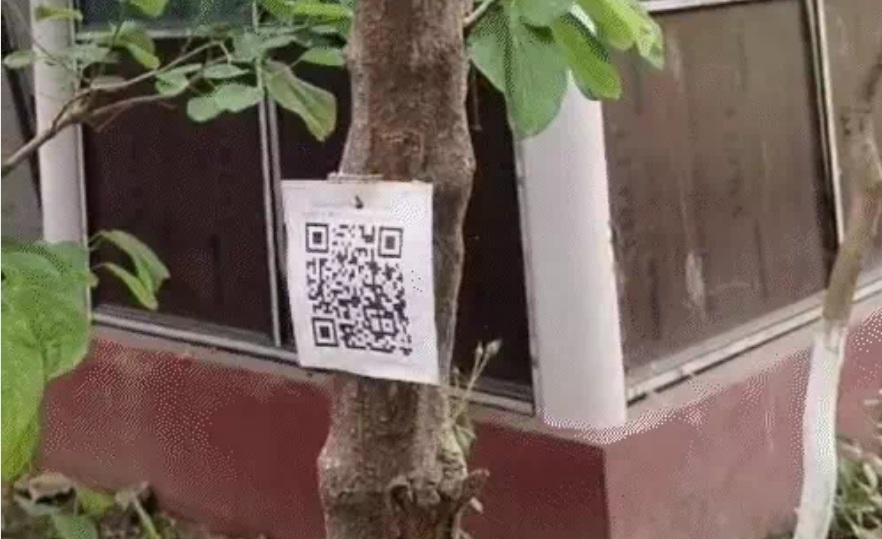
Begusarai: In a quiet but revolutionary corner of Bihar, a herbal garden is leading a digital transformation in how people engage with nature. Students at the Govt. Ayodhya Shiv Kumari Ayurvedic College and Hospital, located in Begusarai, can now identify medicinal plants with a simple scan of a QR code — a unique initiative that blends traditional knowledge with modern technology.
Behind this innovation is Prof. Ramanand Sahni, a teacher and alumnus of the college, who spent a year building a digital database of 305 medicinal plant species. The project is aimed at making plant identification easier for BAMS students and accessible for the general public who visit the garden.
“Second-year BAMS students are required to study medicinal plants as part of their syllabus. Earlier, they had to rely solely on books or attend my lectures in the garden. That’s when I thought of linking every plant to a QR code that gives all the necessary information instantly on their phones,” Prof. Sahni explained.
From Book Learning to Smart Scanning
The QR codes, currently printed and laminated, are tied to plants across the garden. Soon, they will be upgraded to durable PVC cards. By scanning these codes with any smartphone camera, users can instantly access a plant’s scientific and botanical name, family, chemical composition, medicinal properties, benefits, side effects, and references in Ayurvedic formulations.
Prof. Sahni adds, “Though the system was created for students, it has already sparked curiosity among casual visitors, plant lovers, and even laypeople. It’s a tool of awareness and preservation.”
A Living Library of Traditional Knowledge
Located within the college campus, the herbal garden houses over 3,000 plants across 350 species, many of which were sourced from mountains, forests, ponds, riverbanks, and even railway tracks due to the lack of medicinal plants in local nurseries. Unlike ornamental varieties common in urban nurseries, these plants are rooted in centuries of Ayurvedic wisdom — some of them endangered and underutilized.
“There are medicinal plants growing in almost every village, but due to a lack of awareness, they are overlooked. This initiative can help people identify these plants and use them for basic home remedies,” said Prof. Sahni.
A First in Bihar — and North India
According to Dr. Dilip Kumar Verma, Deputy Superintendent of the college, this is the first initiative of its kind in North India, and certainly the first among Ayurvedic institutions in Bihar.
“Dr. Sahni has not only created a student-friendly learning tool but has contributed to the preservation of Ayurvedic heritage,” he said, adding that this model could easily be replicated in other herbal gardens and colleges across the country.
Students React with Enthusiasm
Students at the college are enthusiastic about the development. Instead of memorizing plant data from textbooks alone, they now experience a more interactive and immersive learning experience. “It’s like a live encyclopedia,” one student remarked.
As QR codes continue to transform access to everything from restaurant menus to museum exhibits, this digitized herbal garden stands as a compelling example of how technology can revive ancient knowledge and make it more relevant and reachable than ever before.

